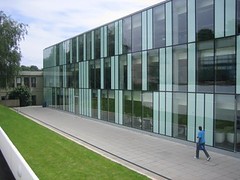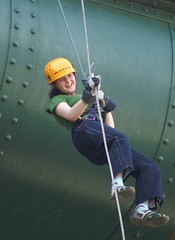This annual meeting is run by the SCONUL Access Group for Access reps from all the libraries who participate in the Access scheme. This year it was held at Kingston University and Karen Senior and I were invited to give a talk about our Guidelines on Library Services to International students, which were originally commissioned by the Group. Karen described the background to the report, the research we had done and the reasons why we felt it was timely. I went on to pull out some themes, namely managing expectations, managing resources, information literacy, staff development, publications, communication and strategy. We wanted to demonstrate how the key concepts we had identified in the report link into these themes and to explain in more detail some of the thinking behind these issues. In order to garner feedback from participants on how the Guidelines relate to their own library situations, we asked them to discuss individual themes in break out groups. I’ll be posting the results of the group discussions on the blog as soon as they have been collated.

Outside the Nightingale Centre, Kingston University,showing the new extension to the library – you can see the chairs of the cafe through the window. (photo from Pippa Jones from Leeds)









